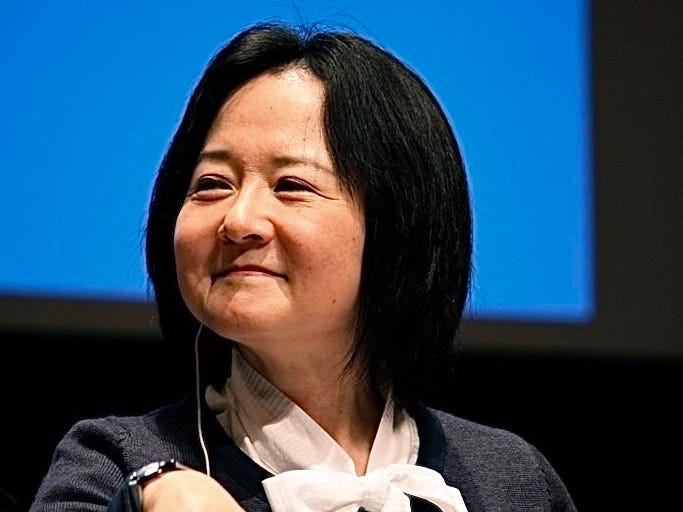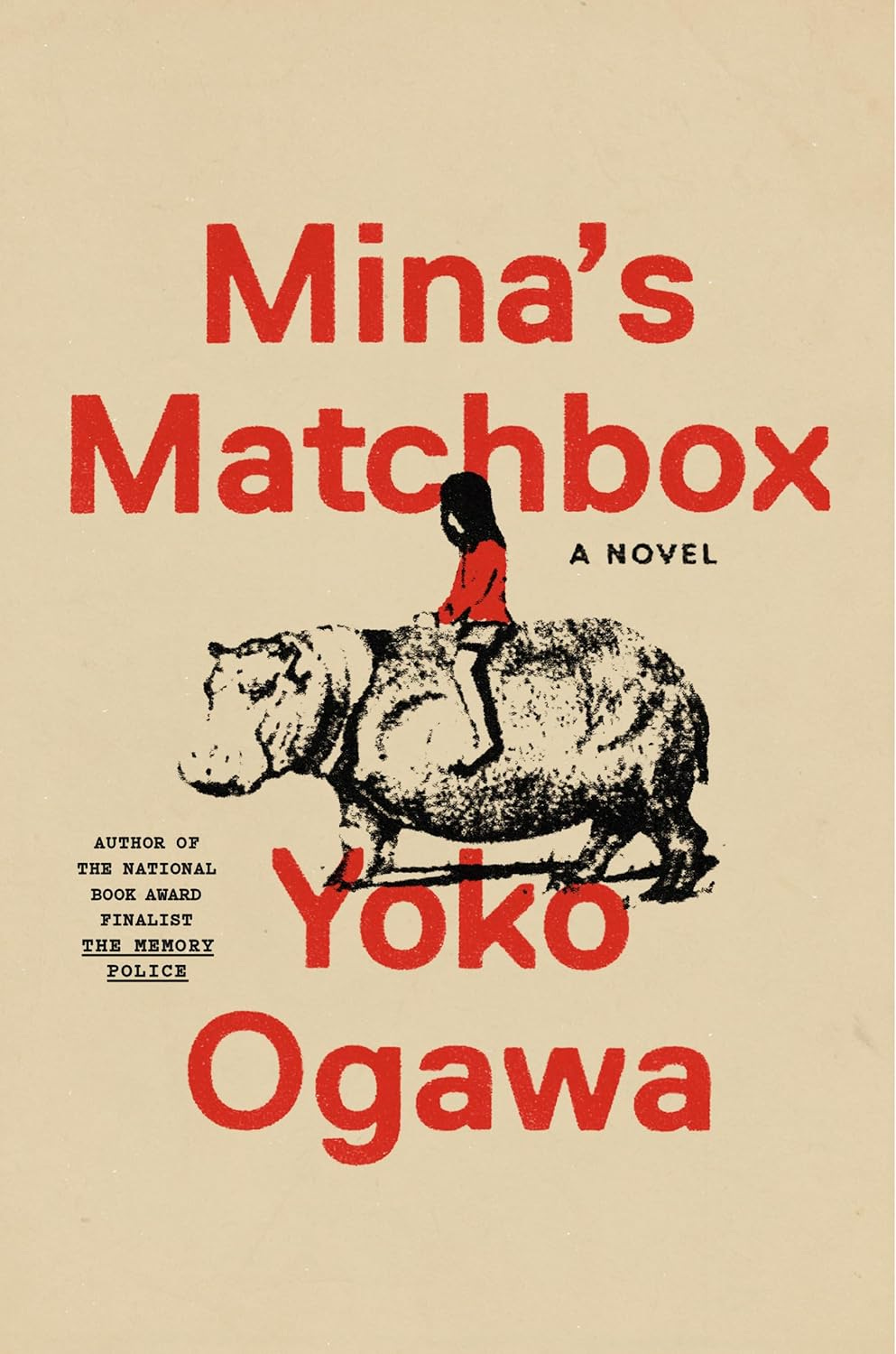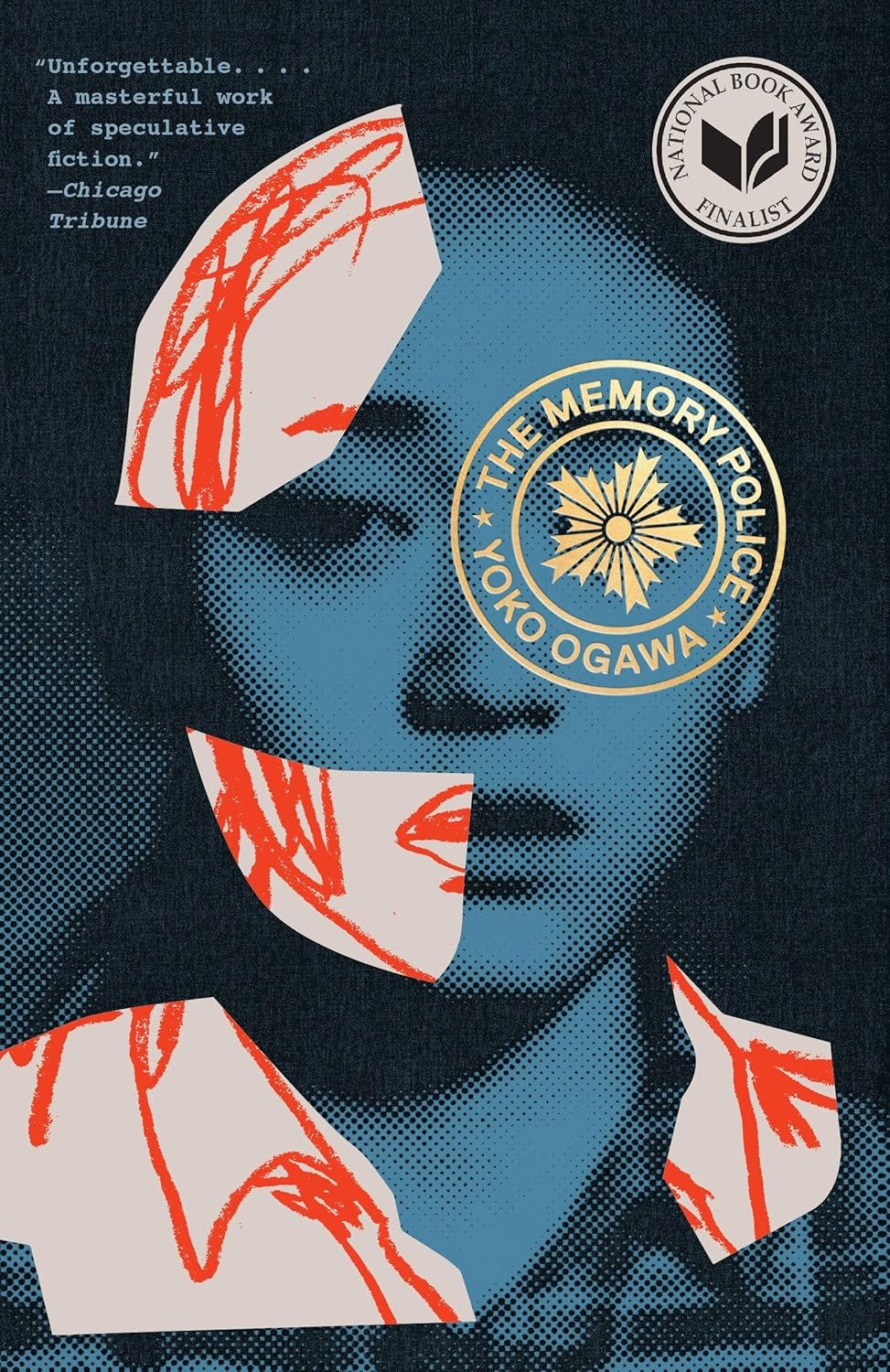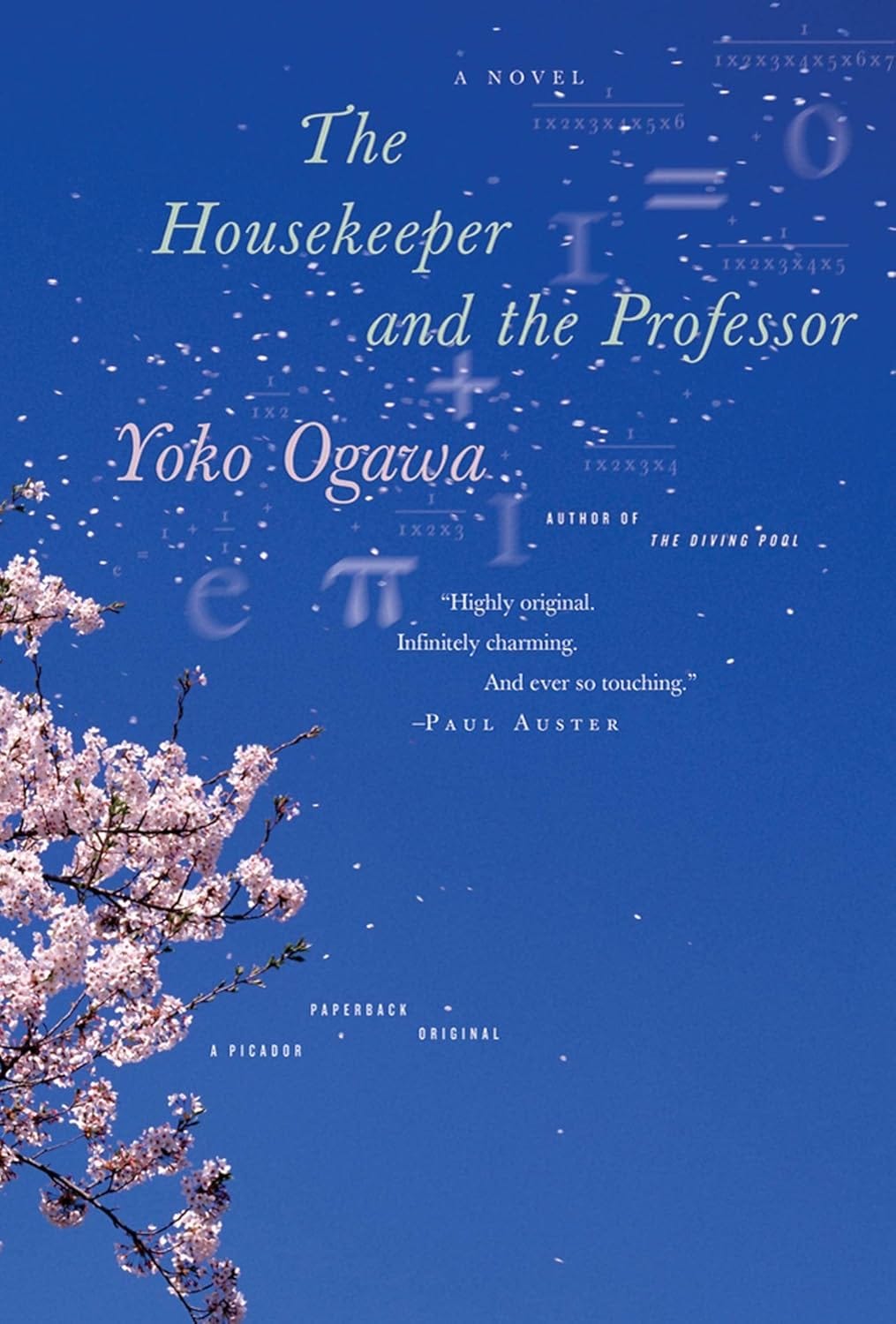Quiet Fragility: Feeling the World with Yoko Ogawa
Inside ‘The Memory Police,’ ‘Mina’s Matchbox,’ and ‘The Housekeeper and the Professor’
I discovered Yoko Ogawa’s Mina’s Matchbox by accident. I was in Cleveland, Ohio, with my son and—as I often do when visiting another city—I searched out the bookstore nearest our hotel. Lucky me! Just a couple hundred yards away stood Clevo, a small shop featuring nothing but books in translation.
On the hunt for a few treasures, I worked my way past every shelf: Albanian, German, Italian, Korean, Vietnamese, and so on, all around the globe. Circling back to the front display tables, I spied Mina’s Matchbox. I’d read only one Ogawa before, The Memory Police, which I found utterly riveting. So, when I saw another, I snatched it up without hesitation.
It would be hard to find two books that differ more.
Domestic Dystopia?
Ogawa sets The Memory Police on a dystopian island where unnamed authorities enforce a sort of collective forgetting. Just why is never clear, but objects disappear from people’s minds and then are ceremonially destroyed to rid them from the island: birds, books, perfume, ribbons, flowers, calendars, finally even body parts. Gone without a trace—except in the mind of some—and that provides the central drama of the story.
The narrator is a female novelist whose editor still remembers everything supposedly expunged. Since the memory police ruthlessly work to eliminate anyone with recall, she decides to hide him.
With the help of an elderly neighbor, she constructs a small shelter in her home to secret her editor away—a la Anne Frank or Corrie ten Boom—while her own memories drift away one at a time. The editor tries to help her remember, to regain what’s being stolen, but they cannot combat the slow strangulation of the memory police.
What did I expect from Mina’s Matchbox? I quickly realized it wasn’t more of the same. Instead, an older woman recalls when, as a young girl, she temporarily left her mother to move in with relatives. The house holds several secrets: a sick cousin, a possible extramarital affair, small mysteries—not to mention a pet pygmy hippopotamus. The tone is tender, domestic, and intimate. And yet echoes reverberated as I read.
Though the settings are radically different, the atmosphere Ogawa conjures in both novels is weirdly similar. Protagonists move in a fog. Everything feels vulnerable and radically contingent, as if either world might fall apart at any moment. Neither story is tightly plotted; the events unfold seemingly at random. And Ogawa’s gentle, understated style pervades both. Despite their radically different subject matter, maybe they were the same after all.
To make sense of the similarities, I decided to try a third: The Housekeeper and the Professor. Again, something entirely different but strangely resonant. If The Memory Police is a dystopian fable and Mina’s Matchbox a nostalgic coming-of-age tale, then The Housekeeper and the Professor is more of an offbeat domestic drama. It involves an elderly mathematician, the titular professor, whose memory resets every 80 minutes. The professor’s sister in law has hired the housekeeper to care for him—to make his meals, do laundry, and so on.
The professor pins notes to himself of things he must remember longer than 80 minutes, including the identity of his new housekeeper and her son for whom he develops quite a fondness. The housekeeper makes sure these tags are reattached every time he changes suits.
The effect is . . . sweet, and at moments disquieting. There’s no mystery here in the traditional sense, no hidden affair, no stifling authoritarian force. But there again is the same emotional resonance, the same sense of quiet fragility. And that’s when it clicked.
Ogawa Herself
As a child, Ogawa read widely, especially children’s literature published beyond the borders of Okayama, Okayama Prefecture, Japan, where she was born in 1962. And that comparison to Anne Frank’s Diary turns out to be apt. Ogawa was captivated by the book in her teens.
“To conjure the kind of physical captivity that Anne experienced, Ogawa would crawl, notebook in hand, into a drawer or under a table draped with a quilt,” says Matoko Rich in a profile of the author. She began keeping her own diary, “writing to Anne as if she were a cherished friend.”
Later she read the leading Japanese authors and studied literature in college, all the while writing for her own amusement and edification. Once married, she quit her job and began writing on the sly at home. But that goes too far; she wasn’t exactly keeping it a secret. She simply never announced what she was doing, and Ogawa was so quiet about her practice her husband knew nothing about it until his wife’s first novel, The Breaking of the Butterfly, garnered a literary prize.
Surprise!

“I always thought, no matter how my life changes, I want to have a life of writing,” Ogawa said in an interview. “Whether I could make any money off it, I did not know.” Turns out she could. She kept writing after her son was born. “I would change a diaper and then write a sentence,” she said. “Then I’d make a meal and write a sentence.” Another literary accolade, the coveted Akutagawa Prize, followed her novella Pregnancy Diary. She had something to say and a way of saying it.
Some fifty novels, novellas, short story collections, and nonfiction books later and Ogawa is one of her country’s preeminent authors and read the world over. Curiously, however, despite the massive scope of her readership, her subjects tend to be small.
Speaking for the Marginal
“Many of Ogawa’s characters exist in quiet corners of society,” says a Nippon.com profile based on an interview by Itakura Kimie. The attraction to the small and marginal began in childhood as well. Her family home doubled as a local gathering place for the Shintō Konkōkyō sect, which welcomes outsiders and people at the edges of mainstream Japanese life.
“The church was a gathering place for all sorts of people without social standing, in a range of different circumstances,” recalls Ogawa.
People were considered equal there. In my novels, there are lots of characters who find it hard to live in society due to something they lack. Maybe I was influenced by encountering so many people like that when I was a child. They’ve been swept into a corner, where they seem to live on the verge of being swallowed up by the darkness.
Ogawa realized she wanted to tell those stories, not even her own stories. She sees them as almost coming from beyond her. “Like I’m just a medium for transferring a story from the world outside,” she clarifies.
Lest that sound overly woo-woo, Ogawa’s referring to her attempt to full realize characters very different from herself in circumstances quite different from her own. She wants to give these people a voice so we readers can imagine and identify what such people in such circumstances might do, how they might act, and especially how they might feel. With a deft narrative hand, she creates a person-to-person intimacy for the reader with her characters—figures who might never even be named in the story.
A Feeling, Not a Fact
“When anybody asks what a story is about, the only proper thing is to tell them to read the story,” said Flannery O’Connor. “The meaning of fiction is not abstract meaning but experienced meaning.” It might be easy to sum up what these three novels are “about,” but that’s an exercise in missing the point.
Can a book about a fascist state so extreme it can wipe out your memory be tender? The Memory Police is. Can the portrait of fractured family bring you back to your own? Mina’s Matchbox can. Can the story of an improvised family centered on a man with no memory connect to your own feelings of loss and hope? The Housekeeper and the Professor does.
What all three novels share? The sense that fragility is the default condition of human experience and that simple if fraught relationships enable us to cope. We make it because someone in our life helps reattach the tags we need to manage the day to day. Ogawa reminds us that human connection is the baseline response to human contingency, friendship the answer to fragility. She does so not by telling us anything so obvious but by gently drawing us into quiet meditations on our vulnerability and the people who help us hold it all together.
Thanks for reading! If you enjoyed this post, please hit the ❤️ below and share it with a friend.
More remarkable reading is on its way. Don’t miss out. Subscribe for free today.
While you’re here, check out . . .







I appreciate your combining three of Ogawa's novels in this review, Joel. The Housekeeper and the Professor is one of my all-time favorite books. I had no idea she was so prolific.
As far as language and the difficulties of translations go, years ago I read a sci-fi novel by Samuel Delaney, in which an alien language, Babel-17 (also the title of the book), actually changed the way its speakers thought, and turned them into agents of the alien culture. Along the same lines, Neal Stephenson's Snow Crash is about a plot to use the pre-Tower of Babel universal language to control humanity. HIs thesis was that the Tower of Babel episode was a liberating event for humanity.
I loved THE MEMORY POLICE, but for some reason it never occurred to me to look for other books by Ogawa. Thank you for highlighting these!